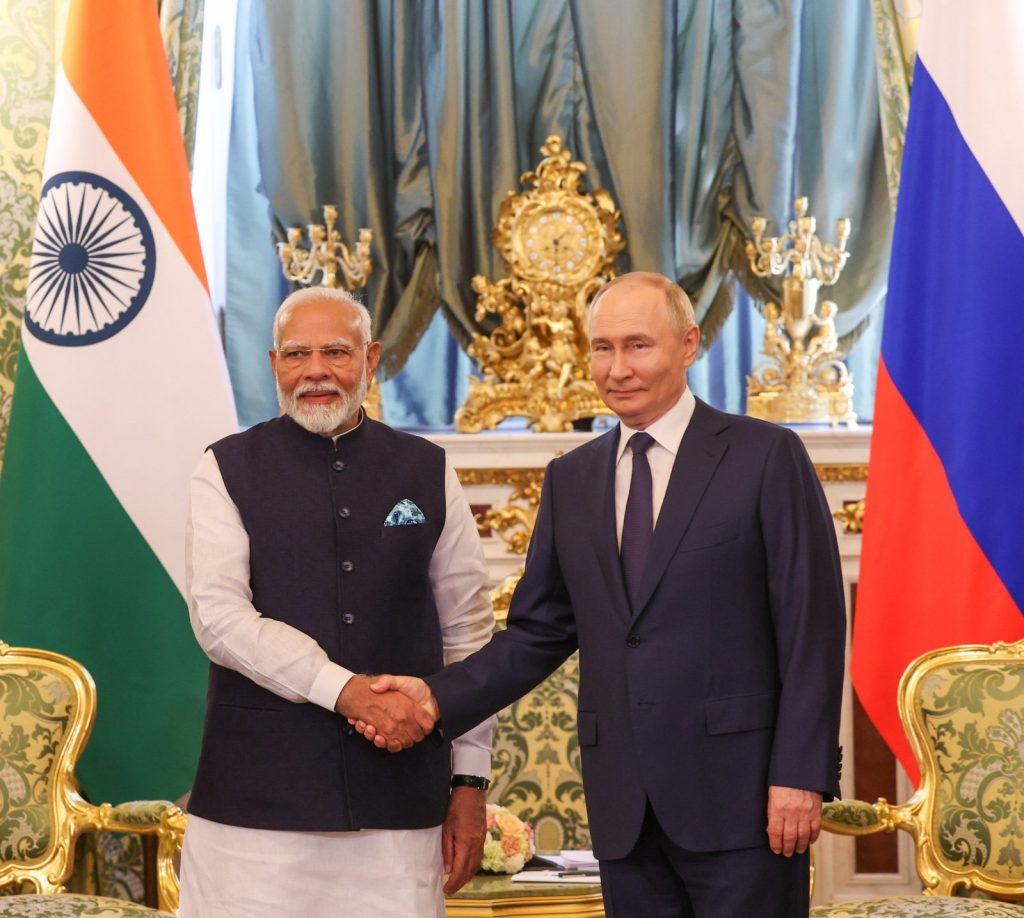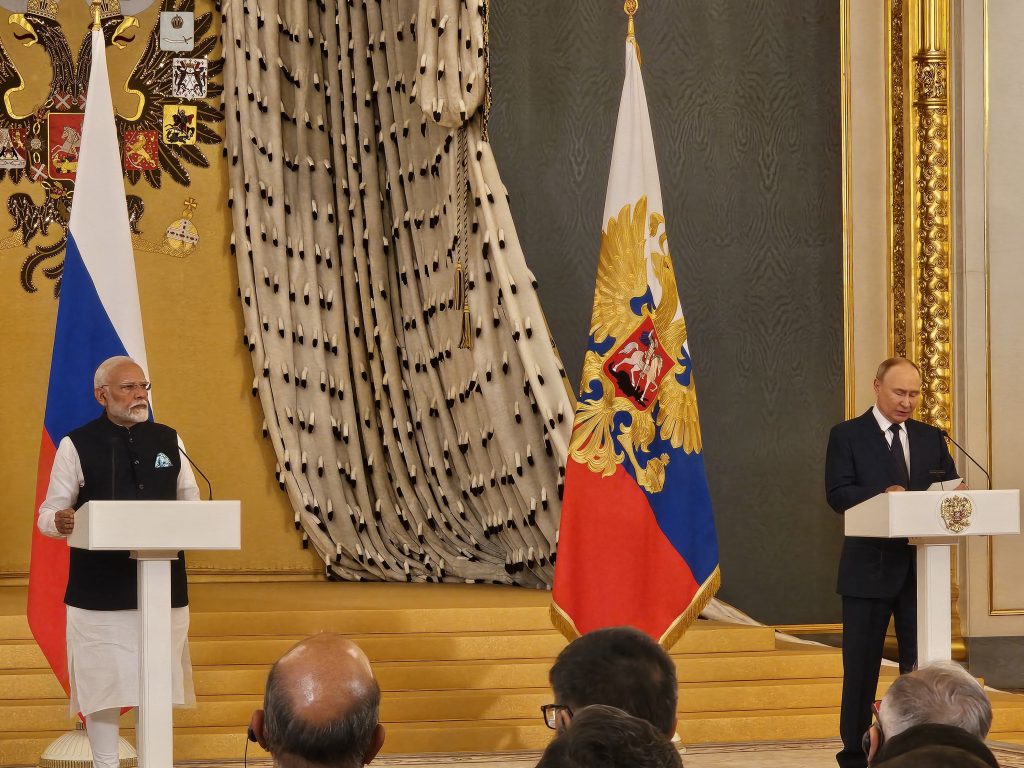
MOSCOW/NEW DELHI: In a compelling statement of India’s strategic autonomy, Prime Minister Narendra Modi met Russian President Vladimir Putin in Moscow and raised the bar for economic partnership by setting a new target of increasing bilateral trade to $100 billion by 2030.
In the face of relentless Western pressure to downgrade ties with Moscow, India acted conversely, with PM Modi unveiling a series of steps that will add more strategic heft and economic weight to the all-weather India-Russia strategic partnership. The leaders of India and Russia held full-spectrum talks in the Kremlin on July 9, which also included an exchange of views on global and regional crises and conflicts such as Ukraine and the Middle East.
With an eye on the West, PM Modi also gently nudged President Putin to resolve the Ukraine conflict through dialogue and diplomacy. “The solution to this conflict can’t be found on the battlefield. It’s only possible through diplomacy and dialogue,” PM Modi told the Russian leader.
Scaling up trade and investment dominated the discussions with the two sides signing nine economic-related agreements. “The major thrust of the discussion (between Modi and Putin) was on economic engagement…the two leaders have set a new target of $100 billion by 2030. Alongside, they have also agreed on the joint statement on economic cooperation specifically till 2030,” Foreign Secretary Vinay Mohan Kwatra told journalists in Moscow.
“So the $100 billion target is, first of all, an expression by the two leaders of the ambition that they have set for the larger economic relationship and within the larger economic relationship… it’s also a very clear direction to the two systems that they need to really put in now efforts to broadbase the trade basket, and of course, make it more sustainable as we go along,” said Mr Kwatra
India also pitched for rebalancing trade by broadening the trade basket between the two countries, especially with respect to greater market access for goods both in the agriculture and the industrial sector.

The two leaders discussed steps to advance negotiations on the India-Eurasian Economic Union trade goods agreement. “We had one round of discussions between the two countries, and it is expected that this would be expedited in the months ahead,” Mr Kwatra said.
A trade agreement between the Eurasian Economic Union (EAEU), comprising five member states of Russia, Belarus, Kazakhstan, Kyrgyzstan, and Armenia, has been under negotiation for many years.
Propelled by dramatic increase in India’s imports of discounted Russian oil in the wake of constraining circumstances that arose due to the Ukraine conflict, India-Russia bilateral trade has escalated to all-time high of $65 billion. This has also widened India’s trade deficit with Russia stood to $57 billion. Russia has now emerged as India’s second-largest import partner.
Author Profile

- Manish Chand is Founder and Editor-in-Chief of India Writes Network (www.indiawrites.org) and India and World, a pioneering magazine focused on international affairs. He is CEO, Centre for Global India Insights, an India-based think tank focused on global affairs.
Latest entries
 India and the WorldFebruary 17, 2026South-by-South: Focus on people-centric solutions at India AI summit
India and the WorldFebruary 17, 2026South-by-South: Focus on people-centric solutions at India AI summit India and the WorldFebruary 7, 2026Modi hails interim India-US trade deal, Goyal says no concessions made on agriculture
India and the WorldFebruary 7, 2026Modi hails interim India-US trade deal, Goyal says no concessions made on agriculture India and the WorldFebruary 2, 2026Trump announces trade deal with India, Modi ‘delighted’
India and the WorldFebruary 2, 2026Trump announces trade deal with India, Modi ‘delighted’ India and the WorldJanuary 31, 2026Palestinian minister bats for mediatory role for India in ending Gaza conflict
India and the WorldJanuary 31, 2026Palestinian minister bats for mediatory role for India in ending Gaza conflict







